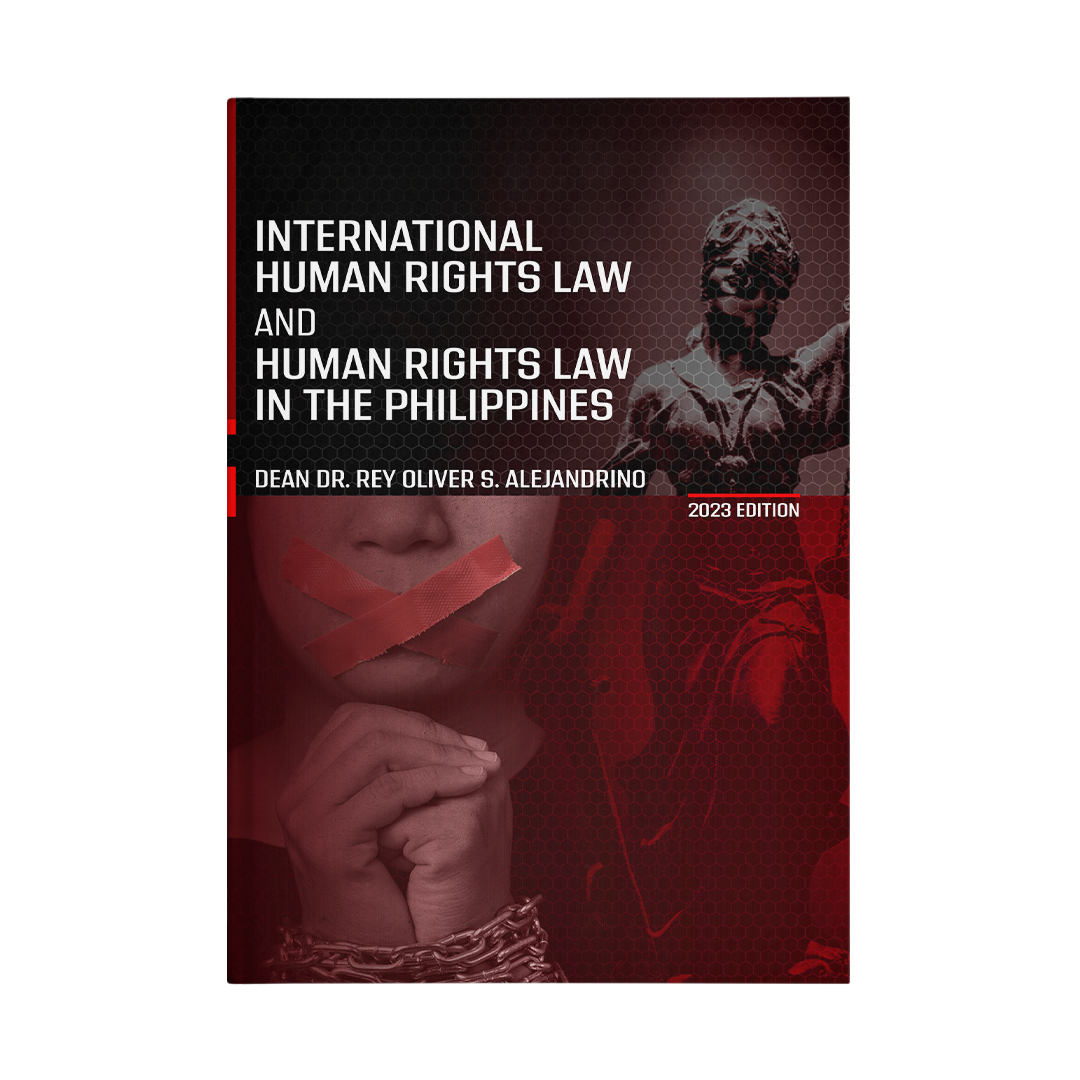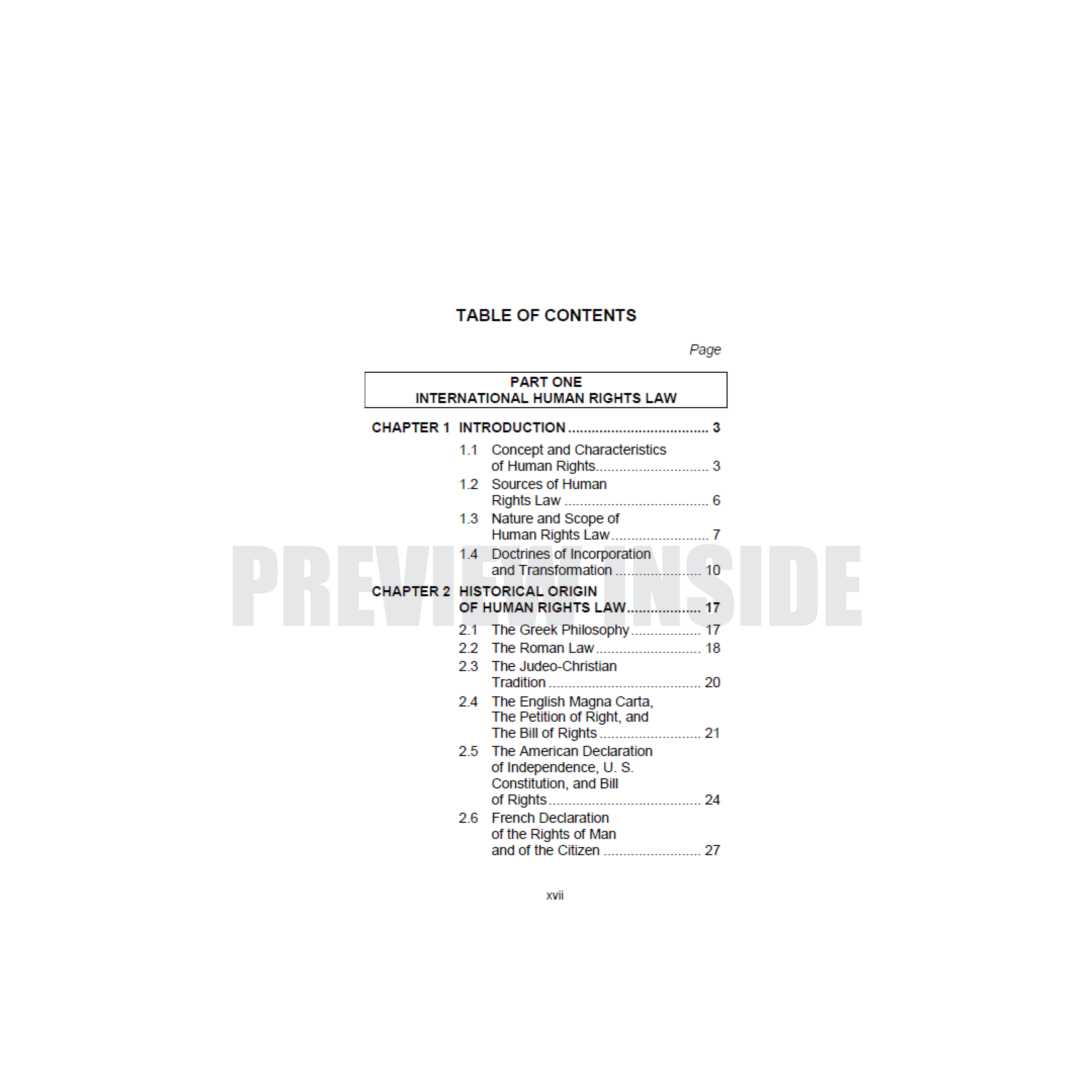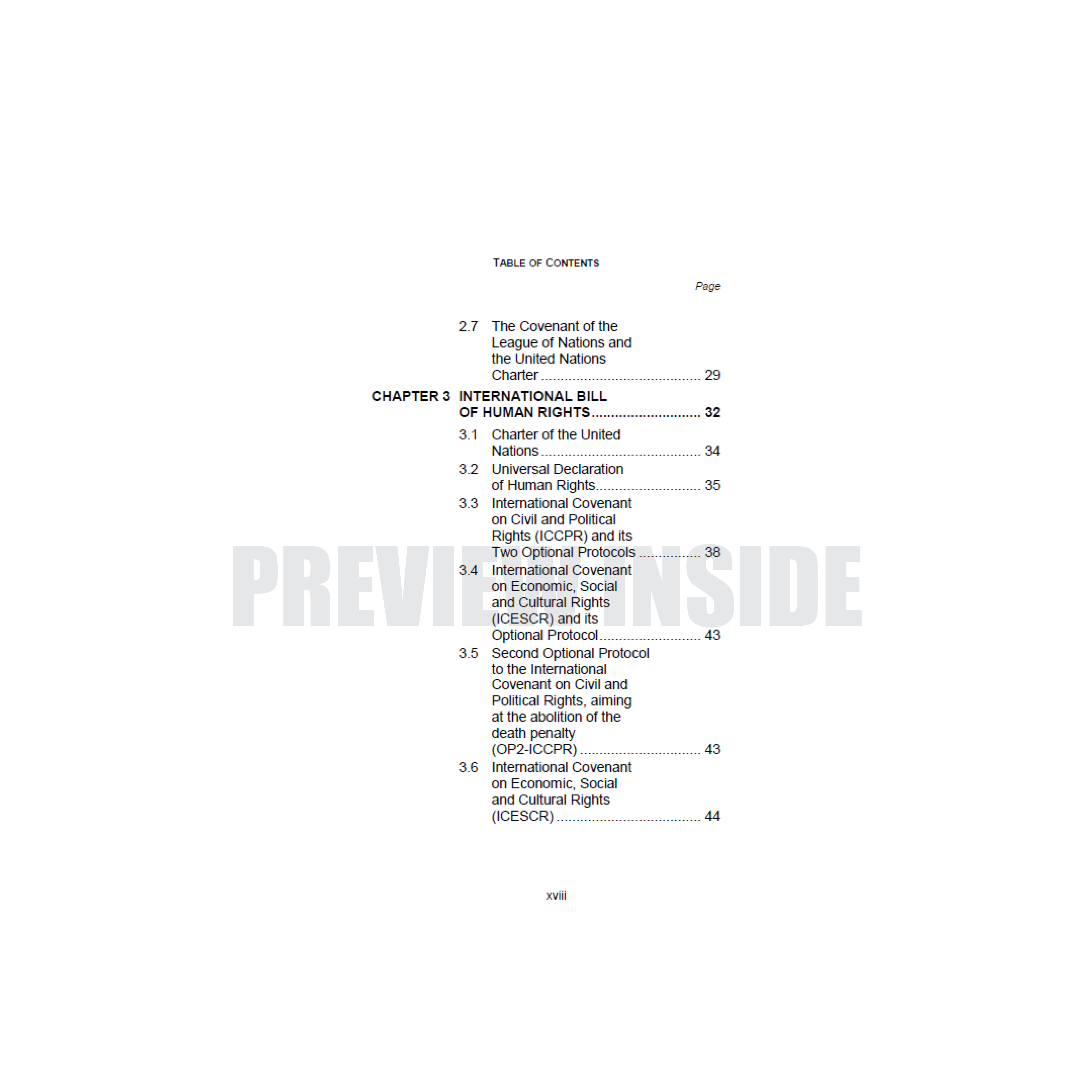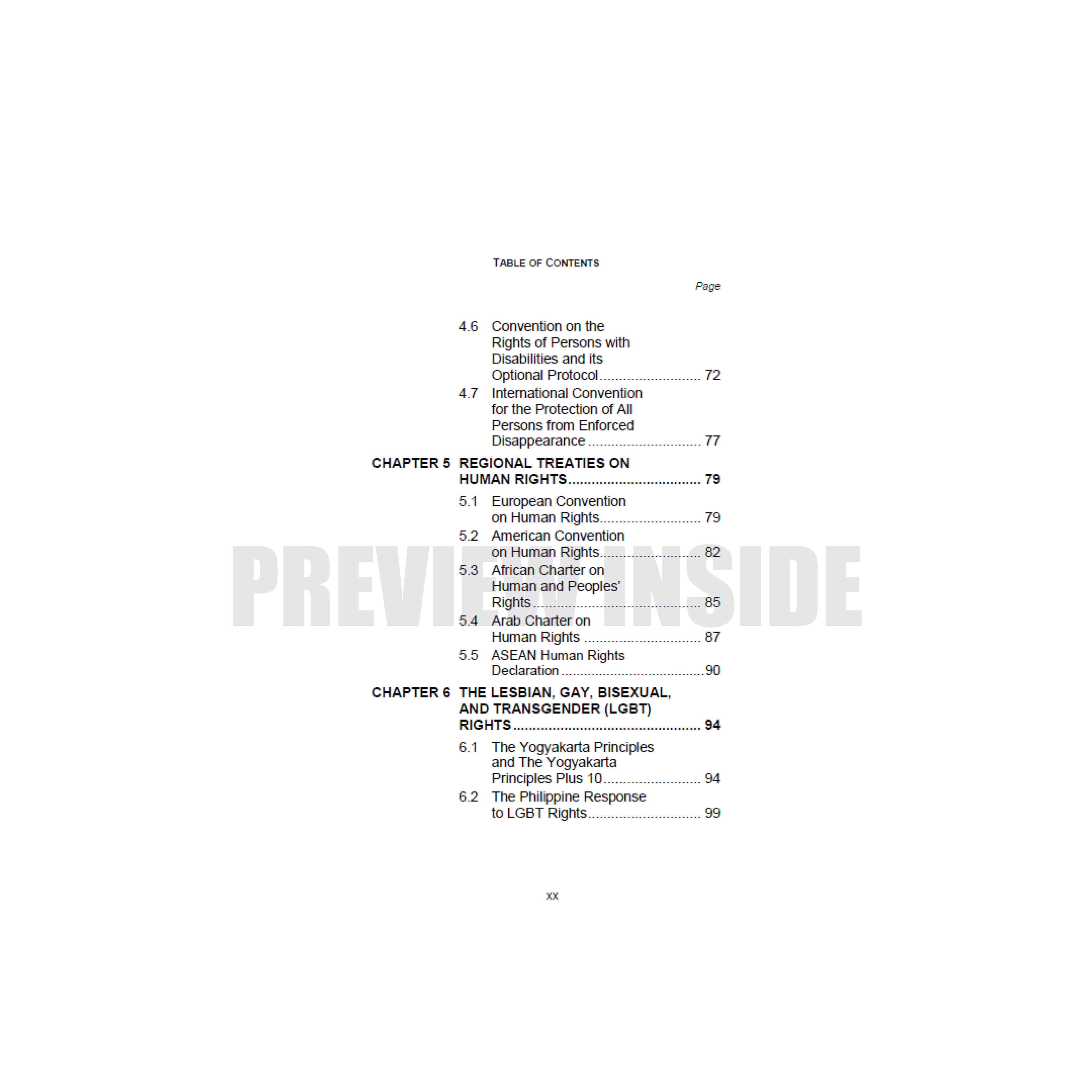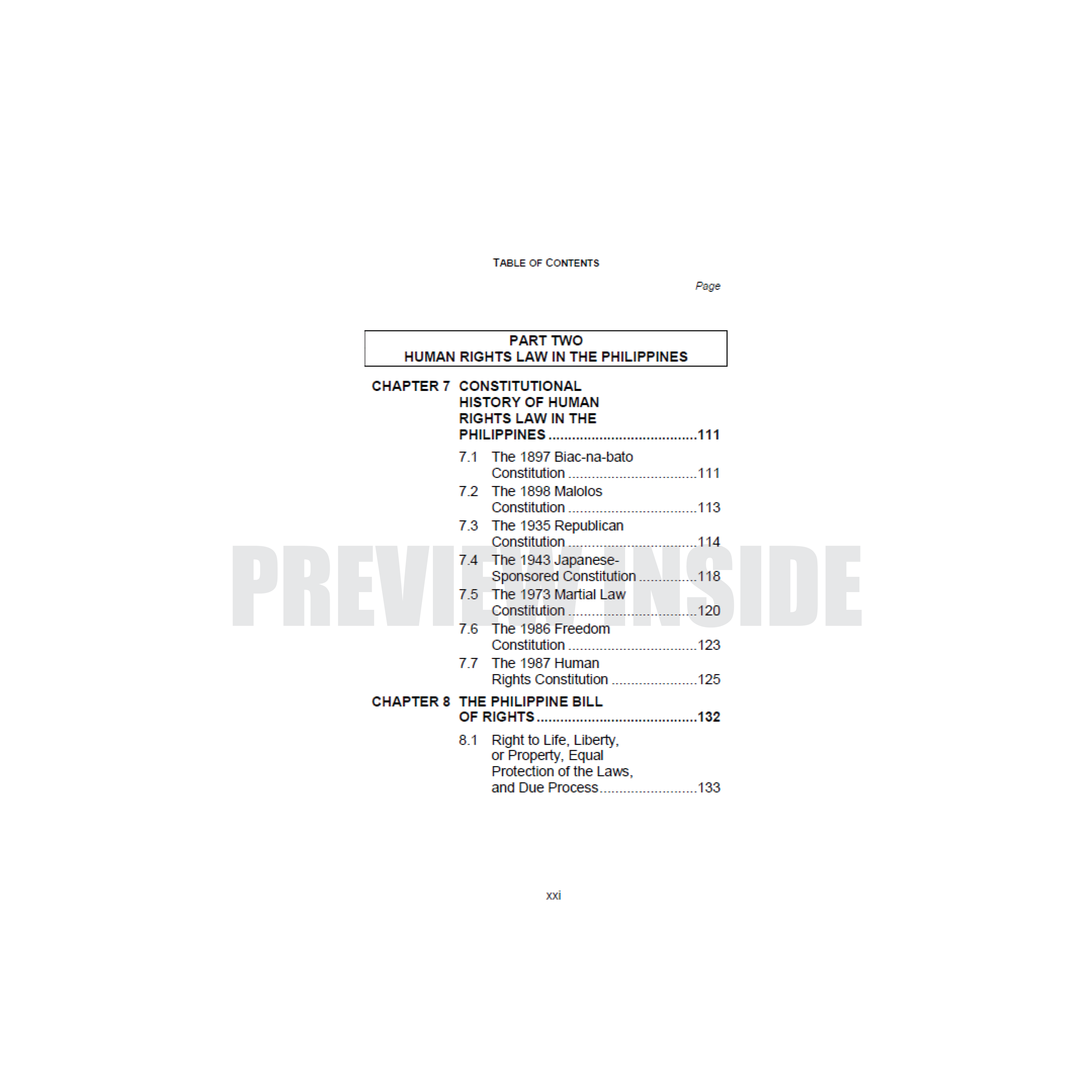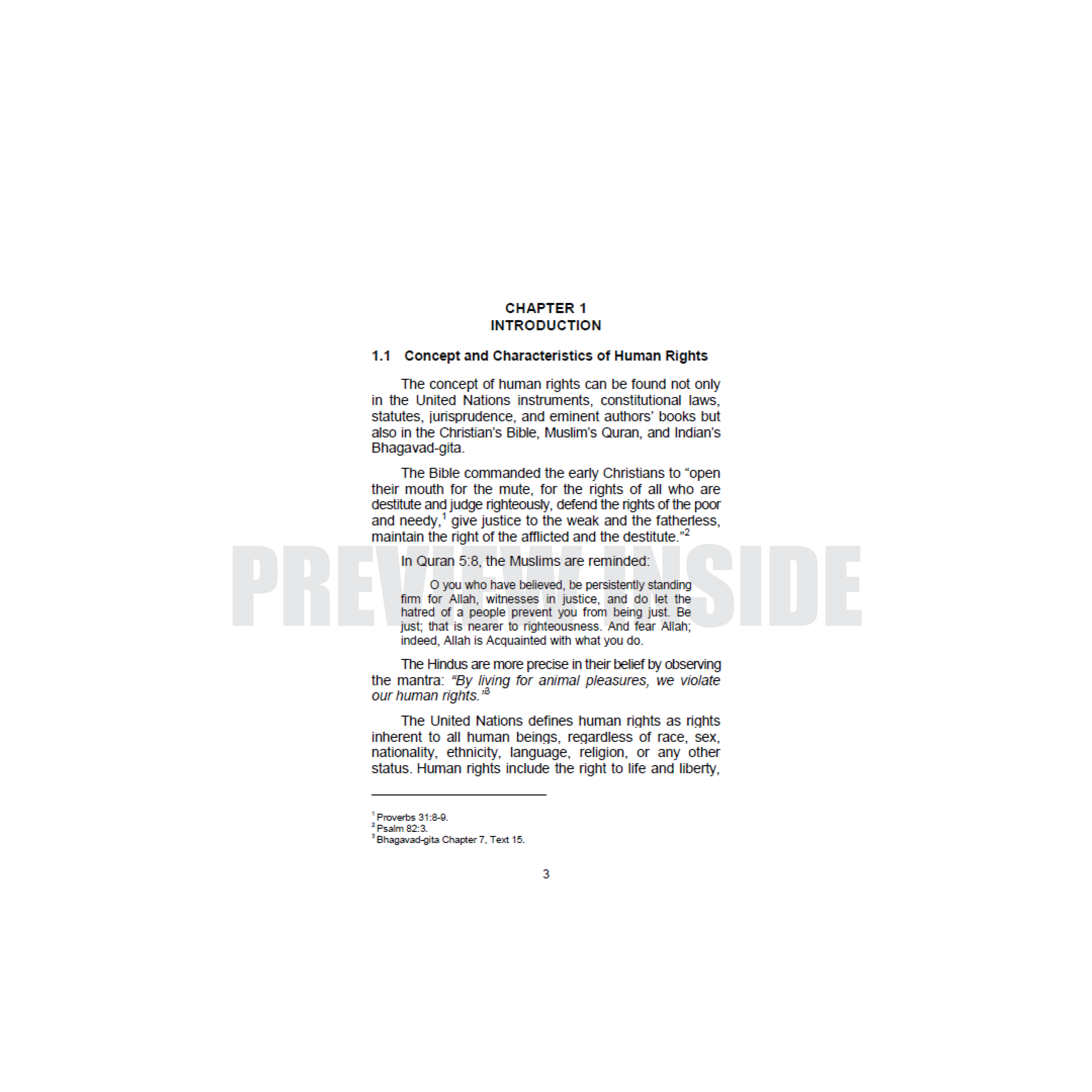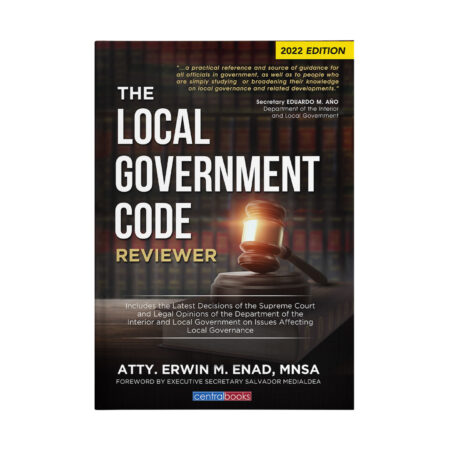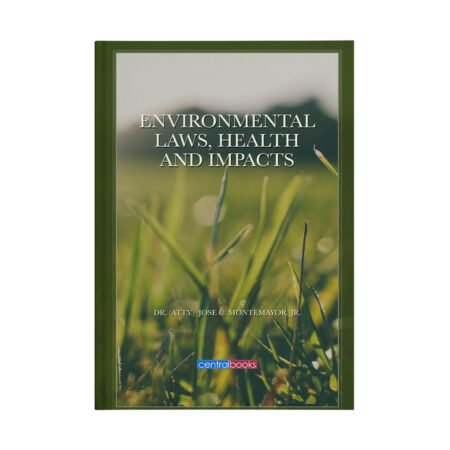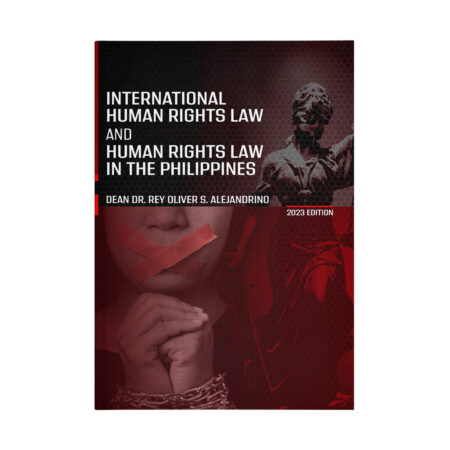Description
In this book’s Part One on International Human Rights Law, it is fascinating to note how Rey starts with some historical and even philosophical discussion, and then ends with Lesbian, Bisexual, Gay and Transgender (LGBT) Rights In Part Two on Human Rights Law in the Philippines, he starts with its constitutional history before going to the Constitution’s Bill of Rights of the libertarian tradition of civil and political rights, followed by its Social Justice Article reflecting the new or second generation economic, social and cultural rights. One gets a sense of convergence, correspondence or counterparting between the earlier discussed (in Part One) “International Bill of Rights” and the current 1987 Philippine Constitution. One can posit that, as far as the Philippine legal system is concerned, basic human rights are already of constitutional status or level. Stated otherwise, in practical law practice terms, one’s lawyering or one’s case cannot go wrong, if one can invoke not only the Constitution but also human rights. This is what makes for better lawyers. And also for better judges. Both law practitioners and judges, not just law students, would thus benefit from a thoughtful reading of this book.
This book’s last Part Three deals with Enforcement of Human Rights Law, both at the international and Philippine levels. Precisely, as indicated in Rey’s opening quote of Mehret Mandefro, M.D., “These rights can’t be given, but must be claimed. I need to teach so people can claim these rights for themselves and live self-determined lives.” Rey does not only teach so that human rights might be claimed by people. He also actually assists them to enforce their rights. Rey is a teacher who practices what he preaches, and whose teaching is informed by his own practice. That is no less the best kind of teaching, one grounded on practice. May this book, which is meant to enhance that teaching of human rights, and which itself has been enhanced by such teaching, become something to further build on, whether by Rey himself or by others like-minded and like-hearted.

